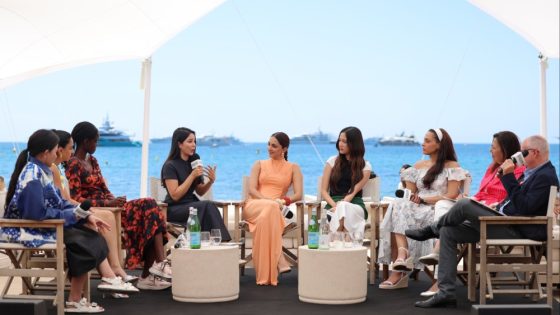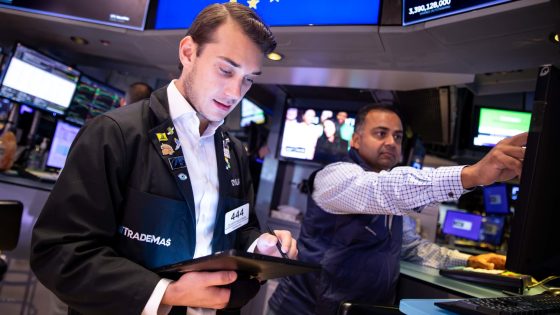For one of this year’s Variety Global Conversations Summit at Cannes, a group of leading women actors and filmmakers from around the world joined Variety’s Nick Vivarelli to discuss how they got into the business, what motivates them and some of the groundbreaking roles they’ve played.
Egyptian actor Salma Abu-Deif (“El-Asliyyin”) discussed her recent turn in the series “Highest Viewing Rate,” which tells the true story of a girl from a poor family who becomes obsessed with TikTok and uses the platform to escape her daily life.
According to Abu-Deif, the show has impacted some traditionally strict Arab parents who have watched it and gained a better understanding of some issues their children face. “I love that I saw Arab parents saying, ‘Oh, maybe we need to listen to our kids, even if it’s against how we were raised or how we think culture should be.’ At the end of the day, culture is just an idea, you know?”
Director and screenwriter Ramata Toulaye-Sy talked about her feature debut “Banel & Adama,” which screened at Cannes last year. Although she was born and raised in Paris, both of Toulaye-Sy’s parents are Senegalese. That relationship is why she decided to film her debut in Senegal rather than France.
But just shooting in Senegal wasn’t enough. Toulay-Sy wanted to shirk expectations and make a romance film set in the country. She explained the motivation: “Because I believe in African cinema, I think it’s important to uplift African cinema. I didn’t want to do a cliché stereotypical and a naturalistic movie about migration or oppression or terrorism.”
Saudi actor Adwa Fahad discussed her recent performance in “Within Sand,” about a girls’ school in Jeddah that was set on fire while the students and staff were still inside. Local restrictions meant that girls couldn’t leave during the day, and the man responsible for locking and unlocking the doors was away on lunch when the fire happened.
Asked about the film’s impact, Fahad replied, “The main reaction among women, mothers, and young girls was that because they lived with those restrictions, they felt a bond with the story in the film. Each of them had a similar story in real life, that they couldn’t leave school without someone unlocking the door and escorting them out.”
For Aseel Imran (“Wadima and Halima”), singing and acting are two sides of the same coin. She recalled that as a child, the first time she ever felt butterflies in her stomach wasn’t inspired by a crush but by an Egyptian play starring Sherihan. “I remember it was magical to me. I knew back then what I wanted to be in the future.”
Easier said than done, the girl had to forge her father’s signature to compete in a singing contest, which led to a spot on a TV show in Dubai. Fortunately for Imran, her parents had her back, and she was able to take advantage of the opportunity and turn her appearance on the show into a career as both a singer and actor.
Indian actor Kiara Advani discussed one of her favorite roles, the romantic lead in “Satyaprem Ki Katha.” The film tells the story of Katha, a girl who was sexually abused by a boyfriend but suppressed the resulting trauma. After an arranged marriage to a man she doesn’t know, she is able to confront those feelings thanks to the support of her new partner. “In many countries, I won’t say just India, there is a lot of social stigma, and the way society looks at sexual abuse has, for years, been repressed,” Advani said.
“When the film was released, the response we got from so many people who’ve been through similar instances just felt like their voice was heard. It’s truly a very humbling moment to be a part of something so topical and see a different perspective,” she added.
Thai actor-model-singer Freen Sarocha Chankimha (“The Sign”) talked about her role in “Gap: The Series,” one of Thailand’s most popular series exports that has been seen more than 900 million times on YouTube.
“The series has broken all boundaries in Thailand because usually, series of movies in Thailand are only seen in Thailand,” she argued. “But to come to Cannes and meet fans from around the world, from Brazil to Japan to Australia or even in Europe, is something that never existed in Thailand before.”
Watch the full conversation above.
Source Agencies



